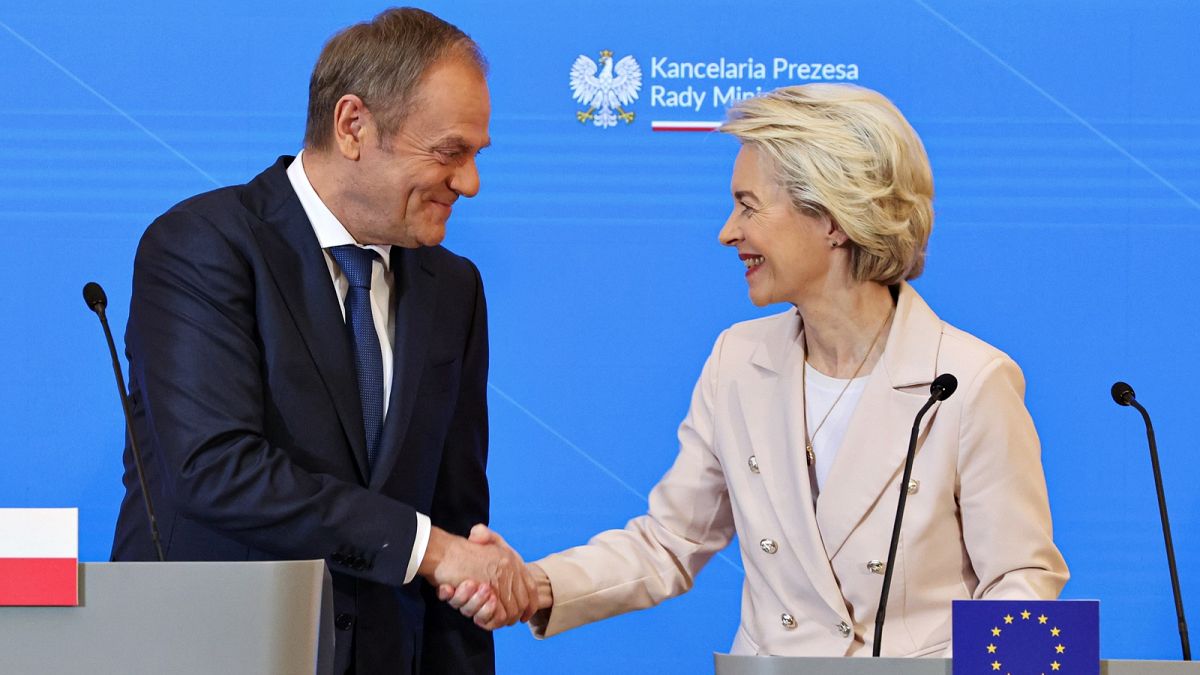The European Commission has announced the first steps to close the Article 7 procedure against Poland, which has been ongoing since 2017. The procedure was initiated due to the country’s systematic breaches of fundamental values and the erosion of judicial independence. Poland has been compelled to appear before other member states to account for its progression or regression in these areas. The unexpected announcement on Monday indicates that there is no longer a clear risk of a serious breach of the rule of law. Only Poland and Hungary have been subject to Article 7 in the past.
The decision to close the Article 7 procedure still needs validation from member states before it can be formally withdrawn. A meeting of European affairs ministers is scheduled for later this month, suggesting that the conclusion will arrive soon. Ursula von der Leyen, the president of the European Commission, praised Poland’s hard work and determined reform efforts in restoring the rule of law in the country. The European Commission believes that the legislative and non-legislative changes proposed by Poland have helped to reverse the negative trend.
The breakthrough represents a political victory for Prime Minister Donald Tusk, who made the reset of Warsaw-Brussels relations a top priority for his pro-European executive. Tusk’s government presented an “action plan” of nine draft laws to restore judicial independence and abide by the rulings of the European Court of Justice. This led to the unblocking of recovery and cohesion funds for Poland. Despite missing some deadlines, Poland has made progress in restoring the rule of law.
Justice Minister Adam Bodnar, who has led the reform efforts in Poland, welcomed the news of the potential closure of the Article 7 procedure. However, none of the nine bills outlined in the action plan have been fully implemented, and the process could still be derailed by President Andrzej Duda’s veto power. The Commission acknowledges that there is still work to be done but believes that the serious risks have subdued to tolerable levels in Poland. The ongoing cooperation includes the annual rule-of-law report and the recovery fund’s milestones.
Monday’s announcement is an opportunity for Poland to move past the years-long confrontation with Brussels and rejoin the mainstream of European nations. The clash began when Law and Justice (PiS), a hard-right, Eurosceptic party, came to power in 2015 and introduced controversial judicial reforms. The Commission fought against these reforms, triggering Article 7 in response to a clear risk of a serious breach of the rule of law. Multiple legal cases followed the activation of Article 7, with some still pending in court.
Despite facing legal challenges and fines from the ECJ, Poland continued with its judicial reforms. The PiS-led government eventually adopted a new law to replace the controversial disciplinary regime with a chamber of professional liability. This paved the way for a broader reconciliation with the European Union, which was accelerated by Prime Minister Donald Tusk’s government. Although some PiS officials have criticized the Commission’s response as politically motivated, the closure of Article 7 is seen as a step towards mending ties with Brussels.











